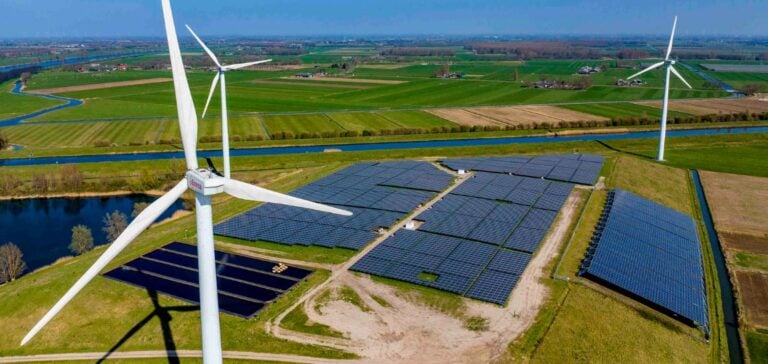The results of a recent survey carried out by France renouvelables, the association representing renewable electrical energies, show that the French are overwhelmingly in favor of the development of renewable energies. Of the 2,000 people surveyed, 82% were in favor of increased development of these energies, with 36% calling for rapid implementation as a matter of priority. This survey comes at a key time, just before the general election, when energy issues are at the heart of the debate. In February 2023, Parliament passed a law to accelerate the development of renewable energies in France.
Growing demand for ambitious regional initiatives
The survey reveals that 61% of French people believe that their region should be more ambitious in developing renewable energies. This demand is particularly strong among young people aged 25 to 34, 75% of whom would like to see more local actions. Regions such as Bourgogne-Franche-Comté, Île-de-France, Hauts-de-France and Bretagne show a heightened level of concern, with over 38% of residents deeming this development an urgent priority.
Michel Gioria, general delegate of France renouvelables, emphasizes: “Opposition to renewable energies is marginal. The majority of French people expect bolder initiatives from local authorities.
The impact of knowledge on perceptions
The study also shows that familiarity with renewable energies increases their acceptance. In regions such as the Grand Est and Normandy, where renewable energy facilities are plentiful, local residents have high expectations of further developments. For example, 67% of residents of the Grand Est and 62% of Normandy residents would like to see more regional ambition.
In Île-de-France, Provence-Alpes-Côte d’Azur, Occitanie and Auvergne-Rhône-Alpes, support for more ambitious development is also significant, with approval rates exceeding 60%. This support is reinforced by the prospect of tangible benefits, such as preferential electricity rates, increased local tax revenues, and financial aid for residents.
The benefits of renewable energies
When asked why renewable energies are important, respondents point to several benefits. Reducing dependence on energy imports was cited as a priority by 50% of respondents. What’s more, 48% recognize the climate benefits of renewable energies, highlighting their low greenhouse gas emissions.
Renewable energies are also seen as an economic driver for rural areas, with 29% of respondents noting their potential to create local jobs. Lastly, 24% believe they help stabilize electricity prices, and 20% emphasize their contribution to local authority tax revenues.
Demand for renewable energies is strong and growing in France. As regions seek to meet these expectations, the economic, environmental and social benefits are becoming increasingly clear. The results of this survey clearly show that the French are ready to support bold initiatives for a successful energy transition.






















